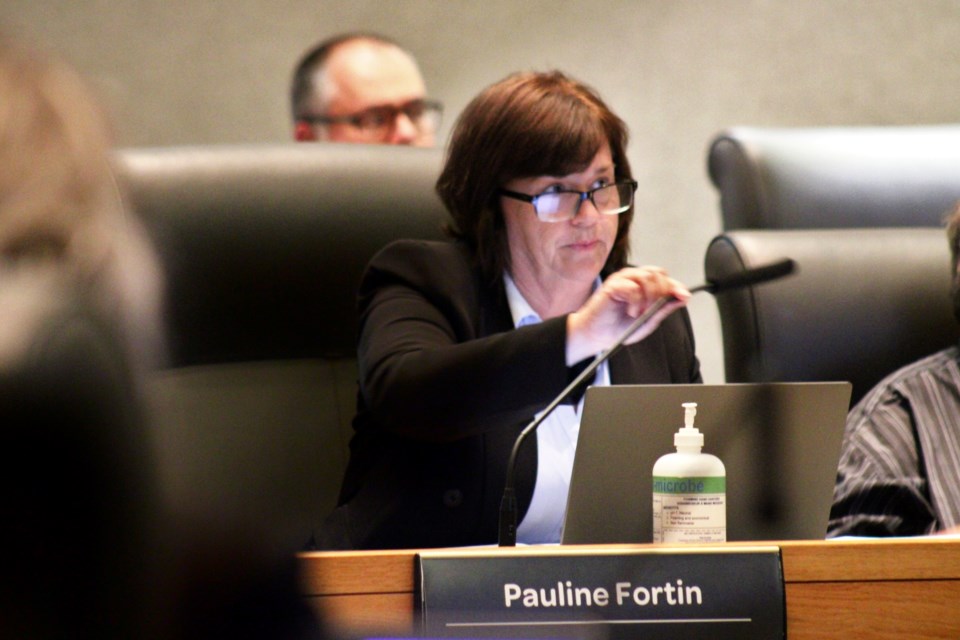City of Greater Sudbury development charges won’t jump by 9.9 per cent on July 1 after all.
During the June 27 council meeting, the city’s elected officials backed a motion by Ward 4 Coun. Pauline Fortin to freeze development charges.
The resolution was narrowly supported by a vote of 7-5.
An hour-long debate in council chambers centred around whether the freeze would spur development, or merely “pad the pockets of the developers,” as Ward 11 Coun. Bill Leduc put it.
City administrators’ comments supported Leduc’s assessment, noting the freeze is unlikely to have an impact on either the amount of development that takes place, or the amount homebuyers end up spending.
The city last froze development charges in 2016, which city corporate services general manager Kevin Fowke said didn’t appear to have any impact on development.
Since 2017, annual permits for new residential builds have increased from 280 to around 450.
“That increase happened even with the increase in (development charges)” each year, he said.
“Studies show that development charges are not a material factor on whether or not that construction proceeds,” city CAO Ed Archer said. “Markets determine the price of the home that’s sold. ... The freeze on (development charge) rates benefits the developer, may benefit the consumer, but most likely benefits the developer.”
This year’s development charges increase was expected to bring in approximately $590,000, according to the city’s high-level estimate.
Rate freeze or otherwise, “the costs don’t go away,” Archer said.
“The infrastructure that was anticipated to be funded by development charges is still required,” he added. “It would have to be funded by another source. ... Taxes would be the source.”
Whatever the final amount ends up being will now be placed on the general tax base, the implications of which will come up for discussion during budget deliberations later this year.
During the meeting, Fortin cited North Bay’s moratorium on development charges for residential construction as evidence a local development charge freeze might help spur development.
According to BayToday, construction activity in North Bay jumped to record levels during the moratorium. The 10-year average for total new dwelling units is 66, and there were 245 residential units built in 2021.
However, not everyone on North Bay city council was convinced the increase in construction activity was a result of the development charges moratorium. Their debate echoed some of the same points of uncertainty shared by Greater Sudbury's elected officials.
With “no marked difference” recorded during Greater Sudbury’s 2016 development charges freeze, Ward 12 Coun. Joscelyne Landry-Altmann urged her colleagues against passing a financial burden from developers onto ratepayers.
“I remember the hand-wringing at budget time,” she said. “We couldn’t add more to our taxpayers, our most vulnerable, all those arguments, and here we are, looking for exemptions.”
The following is how city council members voted. Ward 2 Coun. Michael Vagnini attended this portion of the meeting virtually, and was not available for the vote.
Yes to freezing development charges:
- Ward 3 Coun. Gerry Montpellier
- Ward 4 Coun. Pauline Fortin
- Ward 5 Coun. Mike Parent
- Ward 6 Coun. René Lapierre
- Ward 7 Coun. Natalie Labbée
- Ward 1 Coun. Mark Signoretti
- Mayor Paul Lefebvre
No to freezing development charges:
- Ward 8 Coun. Al Sizer
- Ward 9 Coun. Deb McIntosh
- Ward 10 Coun. Fern Cormier
- Ward 12 Coun. Joscelyne Landry-Altmann
- Ward 11 Coun. Bill Leduc
Although Leduc objected to past development charge increases, he explained to Sudbury.com after Tuesday’s meeting that he believes a freeze goes too far.
“Development pays for growth, and I think we still have to have those development charges in place, but they have to be reasonable,” he said, adding that the city has an infrastructure deficit that needs to be dealt with, and development charges are one tool to help.
Reflecting on Tuesday night’s meeting the following day, Fortin told Sudbury.com that she was happy to see her motion to freeze development charges pass.
“I don’t think it’s going to create a big boom, but hopefully it will help not bring it to a complete halt,” she said. “Increasing it by 10 per cent is not going to help build one extra house.”
The city is currently drafting a new development charges bylaw, which is expected to reach council chambers in approximately eight months.
There are no lack of options to help spur development within the bylaw, she said, adding that one option might be eliminating development charges on residential builds below a certain financial threshold to help make affordable housing more affordable.
The city has a number of exemptions to their current development charges bylaw, including an exemption for affordable housing projects that comply with city requirements.
Tyler Clarke covers city hall and political affairs for Sudbury.com.




